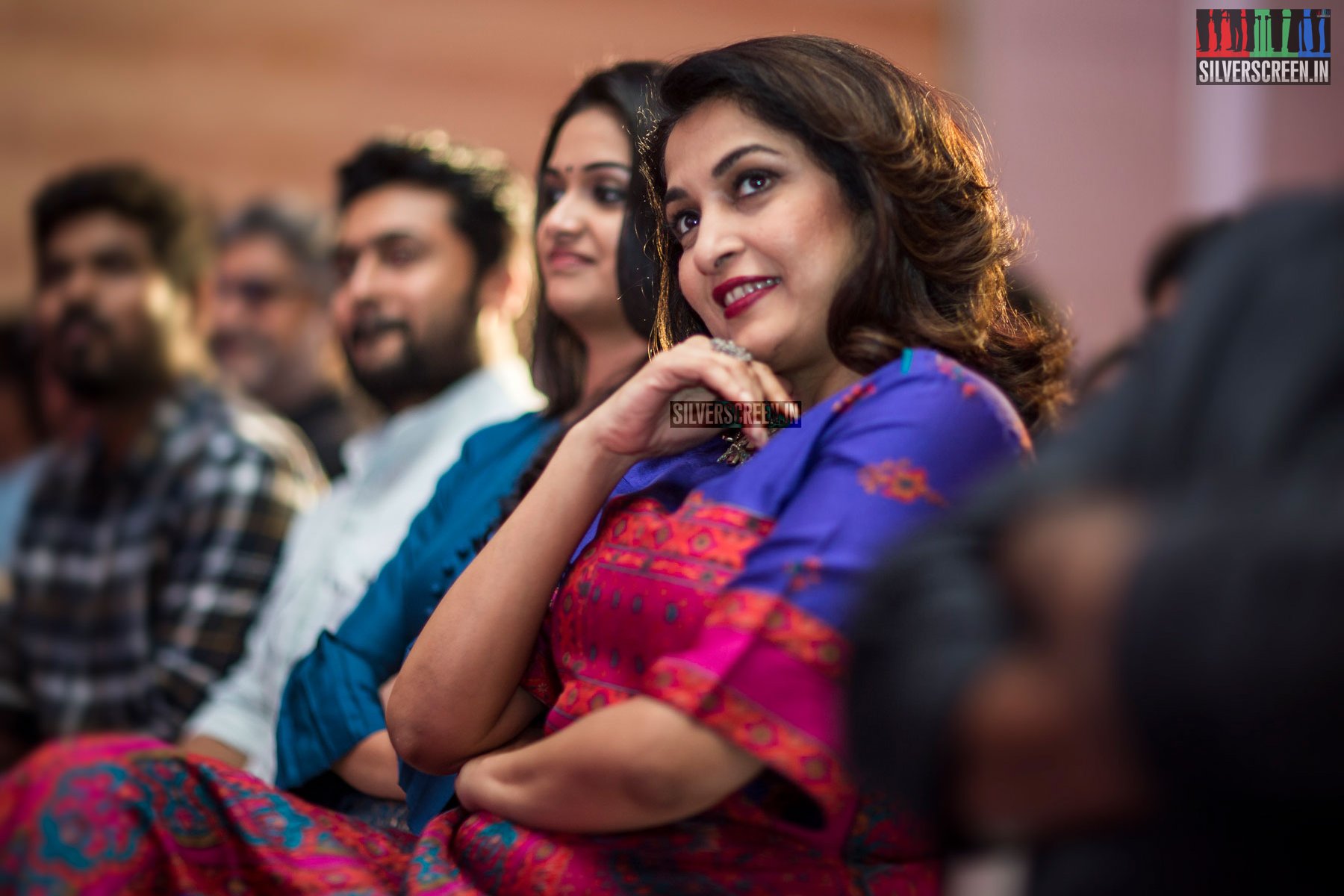Cast: Trisha Krishnan, Jackky Bhagnani, Yogi Babu, Suresh, and Poornima Bhagyaraj
Director: R Madhesh
Music Director: Vivek-Mervin
R Madhesh and other directors of horror films probably subscribe to the Mamtha Mohandas school of thought. In this scary world, pretty women get attacked more. Think Lakshmi Rai, Sneha from the Muni series, Nayanthara from Maya, and Sri Divya from Kaashmora. Pretty much every leading female actor has been attacked by supernatural beings onscreen.
In Mohini, it’s Trisha Krishnan’s turn. In case the script about a wronged woman who comes back to haunt her enemies seems too dated, the director gives us a new buzzword to make it all seem fresh and new.
And that word is epigenetics.
Frantic googling will throw up words like alleles and chromosomes. The kindly Suresh as ‘Monk’ will tell you that epigenetics is the reason why children resemble their parents in actions as well as appearance.
This scientific term, and a couple of professional looking YouTube videos of Emory University professors that come with it, is what makes Mohini different.
But does the average viewer care?
Probably not.
Then, the story is all that matters. But this film has Trisha, whose fans are apparently happy when she does just the song sequence. So, throw in a couple of songs shot in foreign locales (mixed effort by Vivek-Mervin), just to keep the Trisha fans around.
But, but. Does that make them stay till the very end?
Not likely.
The story, then? Would that infuse some novelty in a film desperately in need of it?
Nah.
It is left to Trisha to shake it off and wander onscreen. First as chef Vaishnavi and then as Mohini with four pupils and blue skin. This is not Avatar, dear audience. The pedestrian special effects clue you in almost immediately. If that didn’t do the trick, the relentless oooh, aah – the ghost noises make it blatant that it is leagues away from the James Cameron project.
Jacky Bhagnani is the stalker a.k.a the male lead. He jumps into cabs that Vaishnavi travels in. Yes, this happens in real life (and I can attest to that fact). But while I screamed at this sort of attention from my stalker, Vaishnavi happily chats with him.
Instantly, there’s a love song.
Because what good-looking, ambitious woman will let go of an opportunity to make life easier for herself? Mamtha Mohandas will approve.
And that must certainly be true. For almost immediately, Vaishnavi is in love. She finds out that her boyfriend has to fly abroad. She misses him. And then, she becomes the pei of the piece.
The movie now calls for an exaggerated performance complete with facial tics and what not. Pei portrayal is not easy.
But Trisha is not up for the task. She’s stiff. There’s heavy lifting that needs to be done. But she’s trying too hard to do everything in a pretty way. When she glowers forbiddingly as the pei, she seems to be displaying mild consternation. This is not the kind of pei anybody is scared of.
A scene involving Yogi Babu and gang early on in the movie is funny. But the comedy starts to grate a little bit once the content veers the anti-women way.
In a recent interview, Madhesh said that the film will be very funny. And to this end, he employs Ganeshkar and Madhumitha as the newly weds with opposing views on sex and child birth. Ganeshkar wants to have as many as possible. Madhumitha is averse to the very idea. Thus begins a series of gags in which Ganeshkar pants and Madhu turns her back on him.
Recommended
In films these days, the female lead is accorded a different kind of treatment. That isn’t to say that everything is perfect. No, it is relatively better for the heroine, than say, comic actors like Madhumitha who become the prop for the male actors around them.
It is the same in Mohini. The overall atmosphere in the movie is overwhelmingly male. That is the case when a movie has been written, conceived and worked upon by men.
Even the characterisation of the female leads – Vaishnavi and Mohini – seem stereotypical. Mohini is an aggressive, go-getter who likes looking at her lingerie-clad self in the mirror. Vaishnavi is the type who takes her Indian-ness to London along with her passport.
When will a mainstream film, heavily promoted as ‘female-centric’, showcase the minds and thoughts of the average Indian women?
But, I forgot. This is Mamtha Mohandas’ fantasy land. Average women have it good in real life. Why should they have fun on-screen too?
****
The Mohini review is a Silverscreen original article. It was not paid for or commissioned by anyone associated with the movie. Silverscreen.in and its writers do not have any commercial relationship with movies that are reviewed on the site.



